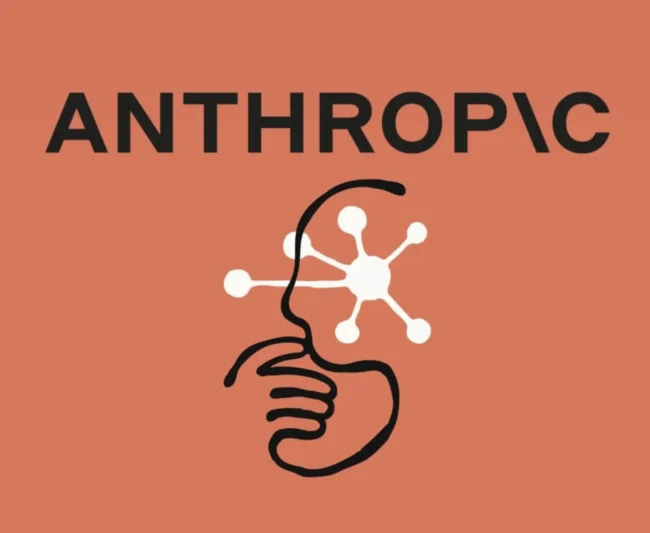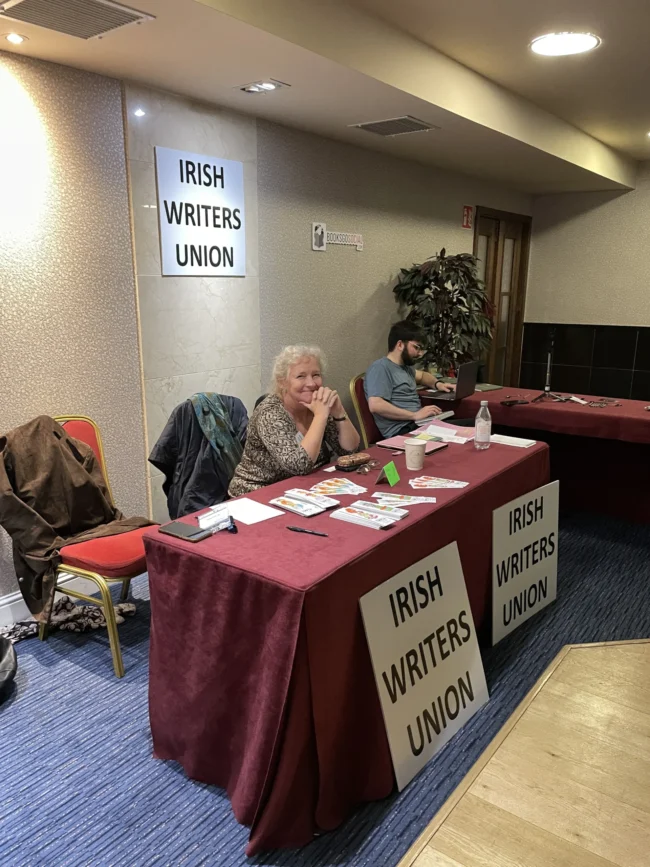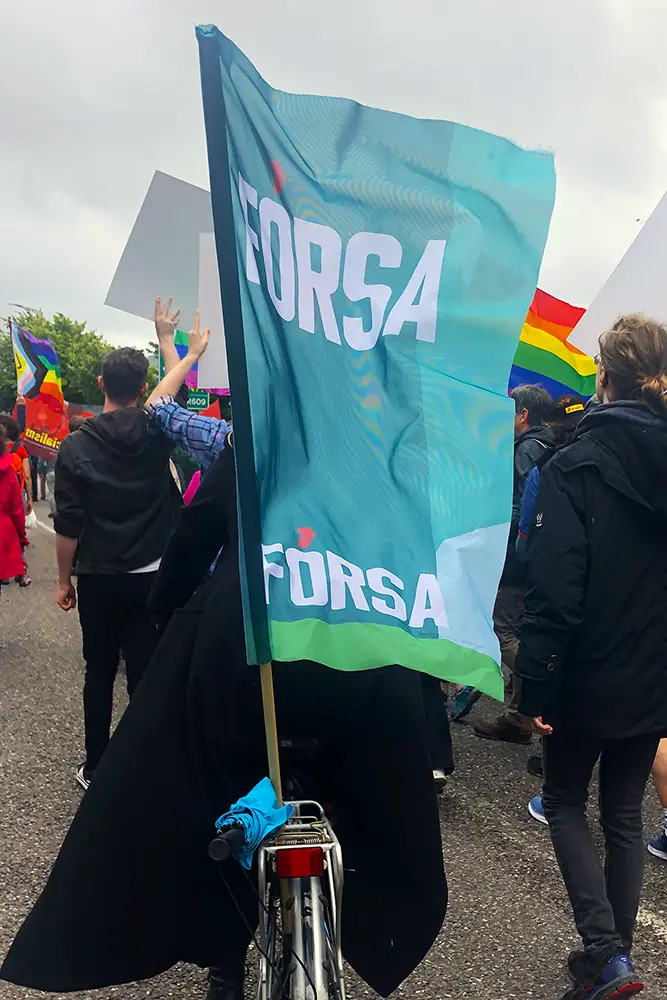
A far right library protest at Cork City library was met with a vigorous response from staff unions and the public. Over the course of 2023 far right activists with links to the Irish Freedom Party and the National Party have targeted libraries in Cork, verbally abusing staff, and demanding that LGBTQ+ books be removed from the city’s libraries. Now library staff have mobilised to resist these self-appointed censors and have called on the Irish public to support them. On 7 July, in Cork, a large public protest and march through the city, organised by the trade union FORSA, took library workers’ concerns directly to City Hall. The march received support from other workers in the public service across the city, and from library users. Now is the time to build links with other like-minded groups and individuals who share our determination not to let these far right bully tactics work.
This Book Is Gay

The current wave of attacks began in Cork in March when a group of men with links to the far right entered the Central Library branch and demanded that staff remove certain books that they claimed should not be in the library system. When library staff refused to cooperate, these men shouted at, photographed, and then ‘live-streamed’ their interactions with library staff. In Cork, LGBTQ+ books were the primary target of the protestors with Juno Dawson’s This Book is Gay receiving particular attention. During one protest Dawson’s book was torn up.
Follow up protests in Cork by the far right took place, all similar in style to the first. They also spread to other areas of the country – to the Swords library branch in Dublin for example. One of most concerning incidents happened at the Tralee library branch when a group of men entered and disrupted a Kingdom Pride story time event being held for children. Eyewitnesses described what happened as a “terrifying situation” with the protestors “doing their best to disrupt, including becoming violent.”
While these protests directed at the public library system are a recent development here in Ireland, they have been an ongoing problem in other countries for years. In the UK a recent survey reported that a third of libraries there have received requests to censor books that the library stock. Librarians in the UK also reported an increase in aggressive and threatening behaviour related to these requests. As in Ireland, LGBTQ+ books are the main focus of the far right in the UK. Interestingly (though unsurprisingly) topics relating to race and empire have also been targeted by these would be ‘citizen censors’.

In the United States the situation is considerably worse. Aggressive and threatening protests have occurred there too, however the scale and nature of the censorship movement in the US is on a wholly different level to that on this side of the Atlantic. Pen America reported that during the 2021-2022 school year more than 2,500 different book bans were enacted in schools across 32 US states. More recent figures suggest that this trend is continuing. Moreover, in the US, the mobilisation of the far right around enforcing censorship is backed by big money and, in addition, has moved into the legislative arena. For example, in Missouri a law backed by the Republican senator, Rick Brattin, had made it a criminal offence for anyone to make “sexually explicit materials available at a school.” However, what is ‘sexually explicit’ is not defined leaving the door open for any individual to claim that a particular book should be banned. Books by George M Johnson (All Boys Aren’t Blue) and Alison Bechdel (Fun Home) have been targeted. Librarians in Missouri report that Brattin’s law has had a chilling effect on the entire library system in the state.
FORSA Take a Stand Against the Far Right Library Protest
The protests and incursion organised by the far right in Cork have festered now for months. The unpredictable and aggressive nature of the protests has also caused considerable anxiety and fear among staff who have had to endure being shouted at, photographed, and called vile names without recourse to any protection. The obvious question is what are the Gardaí doing?
When notified and asked to help the gardaí usually arrive promptly. However, their approach is unremitting ‘softly, softly’. Arguing that no law as such has been broken by these protestors, they have stood back from making arrests. We can see the results of this approach now: it has emboldened the far right and made them more aggressive. The justification used by the gardaí so far has been around their claim that they need to respect ‘the right to protest. Of course, that is an important concern, but it is worth noting that this approach by the gardai does not extend to others who engage in disruptive behaviour. In Cork in June when protestors attempted to question the Tánaiste, Micheál Martin, during a meeting in UCC about Irish neutrality, protestors were physically manhandled and promptly removed from the auditorium. The tolerant approach that the gardai have taken with the far right seems to be one-sided as well as ill-considered.

FORSA, the trade union representing library workers, decided it needed to take a stand. They have spoken with clarity about what is at stake here. It is worth looking at the points they have made. Firstly, library workers are entitled to attend work in the knowledge they will not be verbally abused or harmed. No one should have the right to walk up to anyone working in the library system and call them a child abuser or worse. Library staff in Cork, and elsewhere, have already gone on record to voice their concerns about the impact these ongoing protests are having on them individually. In this regard FORSA have made it clear, that action needs to be taken. These actions by the far right should not be protected under the standard of ‘the right to protest’. FORSA are calling for the law to be changed allowing library management to bar (via a count injunction) members of the public from entering a library branch if they repeatedly engage in abusive and confrontational behaviour with staff. This is the limit of what they are asking for, and it would seem reasonable.
FORSA have also addressed the issue of free speech. It is an appropriately cherished right, and it is important that we always consider any effort at any time to limit it. But library workers are clear that free speech is not the issue here. As they have put it ‘hate speech is not free speech’. Running amok inside a public library, being deliberately aggressive, loud and disruptive is not a right that anyone should have. Indeed, tearing up books that you do not agree with is not either.

FORSA have also drawn attention to the values that the library system upholds on all our behalf. The library is a place for all ideas, for all voices and stories. It is a place people go to for different reasons: to read, to think, to find out information, to be with our people. Cork City Libraries is at the forefront of making the library system a more welcoming place. Cork is at present the only city in the country that is part of the Rainbow Cities Network, a global LGBTQ+ policy group founded in 2012. This LGBTQ+ community initiative has been popular and well supported. The city’s library branches have also put similar initiatives in place for people who do not speak English as their first language. FORSA points out that undermining and disrupting this welcoming approach in the library system is one of the aims the far right.
A final point about the FORSA protest and march that took place in Cork in July. Library workers have repeatedly spoken out about how difficult and undermining the current situation is for them. It is important to acknowledge this and the impact it is having in the library network. Solidarity needs to be our response. In Cork in July the city’s library workers marched in substantial numbers, but they were joined too by their colleagues in City Hall, and from many other parts of the city’s public service divisions. Substantial number of library users also took part, along with a raft of organisations representing the LGBTQ+ community in the city and county.

Make Links Now for the Future: Prevent Far Right Library Protests
We are not at any crossroads yet, but we could be heading towards them in the years ahead. Across Europe the far right has made important electoral gains – gains that were considered improbable just ten years ago. Electoral representation for the far right will also inevitably lead to legislative change. We can see what this means in Italy where the new Meloni government has focused on attacking LGBTQ+ rights from the get-go.
It is probably a positive thing if, here in Ireland, we think ‘that will never happen here’. Such confidence was hard won and indeed there is good reason to believe it is true too – that we will be able to resist any drift to the far right in this country. But at the same time, we cannot be complacent. Complacency is dangerous. In part because the far right is mobilising like never before. But also because the conditions that favour the far right are strengthening. These conditions, related to the large rise in inequality and the hollowing out of the public services, must be countered too.
We Can Win Against Vigilante Censorship
The drive to impose censorship and ban books has been successfully resisted in plenty of libraries. Many of these successes we do not hear about. Here are some of the ideas that have worked.
- Building links around attacks that happen by the far right is vital. If you are concerned enough to want to do something about it, draw up a list of local groups and organisations that you can reach out to. Approach them about working together to act in solidarity with the libraries and their staff.
- Consider sending a letter of solidarity to the local library signed by your group. Or a letter to the the newspaper saying similar. The important thing is to link up now with those you know who are also concerned. Many people are, but they just do not know what to do. Start the process of talking now about these protests and establish your network of solidarity. It will be a resource you can build on and go back to again and again.
- Finally celebrate those books and categories that are threatened. Get together and hold readings and share the goodness of hearing these threatened stories. Make it very clear to your local council and to library management that you oppose any censorship and that the vast majority of the public do too.
A final point that relates to this. A message that emerged strongly from the FORSA march in Cork is this. Six hundred people marched with the library staff during the middle of a working day – from one end of the city over to City Hall. Only twenty-five people, if that, stood with the far right at their counter-protest. The numbers speak true truth here: the majority of us are for tolerance, diversity, respect and love for all people of any religion or none, colour or sexual orientation. We just need to make sure that we’re heard. From now on let’s do that.

IWU Committee members at the rally of 2 September 2023.

Kevin Doyle is an author and former Chair of the Irish Writers Union.










